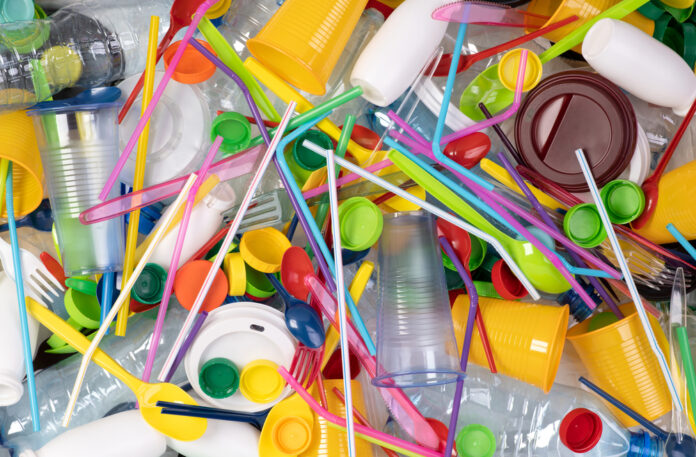The Philippines is looking at various tax reforms including excise tax on single-use plastic bags as part of initiatives to address plastic pollution and mitigate the impact of climate change, according to a Department of Finance (DOF) official.
We are currently working with the legislative branch and with other government agencies on different tax policy reforms concerning the environment. One of these is the proposed excise tax on single-use plastic bags,” said DOF Undersecretary Cielo Magno.
“This proposed policy is not meant to replace the current policies that have been put in place already by our local government units, particularly the banning of the use of single-use plastic, but this one is meant to complement the existing policy,” Magno said in her closing remarks at the Nordic-Philippines climate change dialogue held on February 16.
She said the proposed excise tax on single-use plastic bags is a step towards curtailing plastic waste generation. “This proposal is the Philippines’ contribution to the global movement to reduce pollution and adopt more sustainable practices while at the same time raising much needed revenue to spur our economic recovery.”
The proposal is estimated to generate around P38 billion in total additional revenues in the next five years and reduce the volume of consumption by around 25 percent, Magno said.
The House of Representatives approved on third and final reading in November 2022 House Bill No. 4102 or the Single-Use Plastic Bags Tax Act, imposing an excise tax of P100 for every kilogram of single-use plastic bags removed from the place of production or released from custody of the Bureau of Customs.
The tax would be increased by 4 percent every year starting January 1, 2026.
Magno also said she has taken note of a suggestion to impose virgin plastic use tax and it will “become part of our policy list.” Tax on the use of virgin plastics will essentially see fees imposed on the sale of virgin plastic used for single-use products.
But she added that the DOF is not just focused on taxes. “We are in fact giving incentives to green companies, renewable energy companies, and companies that are introducing new technologies through the Fiscal Incentives Review Board,” she assured.
The executive bared other relevant plans and reforms in support of climate change mitigation. She said the government is going to “study the feasibility of establishing a carbon pricing mechanism that will help reduce our carbon emissions and reach our NDC targets,” adding that talks with different developmental partners are already ongoing.
Further, the DOF remains steadfast in mobilizing green financing for climate change mitigation through fiscal policy, blended forms of financing, private partnerships, and international capital market sources to generate more investments, she added.
“We’re currently establishing a sustainable financing ecosystem to synergize investments from the public and private sector and yield green and social projects that will have a lasting and permanent effect on the environment and our people,” Magno disclosed.
Additionally, the Medium Term Fiscal Framework (MTFF), the government’s blueprint for promoting robust economic growth, contains specific agenda on pursuing a green and blue economy and establishing livable and sustainable communities.
“The MTFF proposes measures that will enhance fairness and efficiency of our tax system while promoting environmental sustainability to address climate change,” she said.
Magno added that there are also plans to build a stronger partnership with the private sector to drive sustainable investments, including financing the development of low-carbon energies and establishing a sustainable pipeline database for public and private sector projects, among others.
The Philippines saw Republic Act No. 11898, or the “Extended Producer Responsibility Act of 2022,” lapse into law in July 2022.
The EPR Act institutionalizes producers’ responsibility over plastic packaging waste, amending Republic Act No. 9003, otherwise known as the Ecological Solid Waste Management Act of 2000.
The law was crafted to regulate single-use plastics and their production, importation and disposal by industries. It defines EPR as “the environmental policy approach and practice that requires producers to be environmentally responsible throughout the life cycle of a product, especially its post-consumer or end-of-life stage.”
The EPR implementing rules and regulations was issued in January 2023 and prescribes the procedures and guidelines for implementing the EPR Act.







